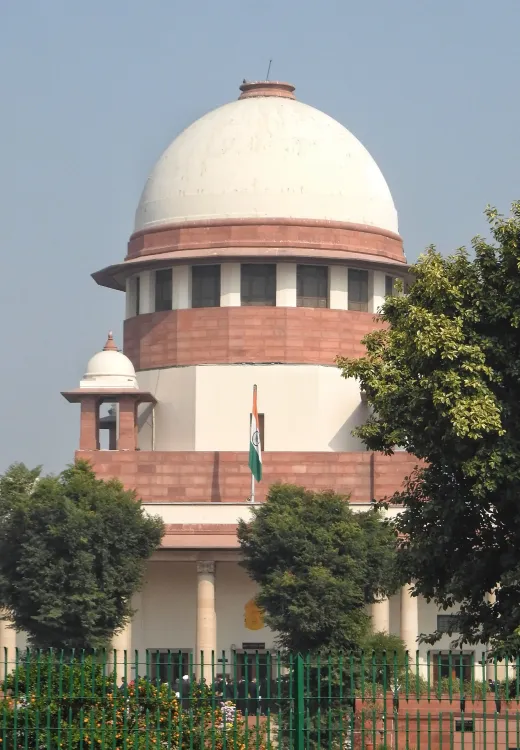Supreme Court Imposes ₹5 Lakhs Penalty on Employer for Pursuing Wage and Termination Dispute via Arbitration

New Delhi, Dec 12 (NationPress) The Supreme Court has imposed a penalty of ₹5 lakh on an employer for improperly dragging a wage dispute and the legality of an employee's termination into arbitral proceedings.
A bench comprising Justices B.R. Gavai and K.V. Viswanathan stated that the application submitted under Section 11 of the Arbitration and Conciliation Act, 1961 represented a blatant abuse of the remedial process.
The appellant, Dushyant Janbandhu, argued that the dispute with the respondent-employer falls under statutes governed by the Payment of Wages Act, 1936 and the Industrial Disputes Act, 1947.
The appellant was hired as an Assistant Manager in March 2019. Following the Covid-19 pandemic, when Hyundai AutoEver India instructed the employee to return to physical attendance, he declined to comply. A charge memo was issued citing breaches of several contractual terms, including non-cooperation and absenteeism, culminating in an order of termination in January 2021.
While the disciplinary action was under consideration, the appellant, not receiving his salary, issued a legal notice demanding wages under the Payment of Wages Act, 1936 and filed a petition with the appropriate authority.
In retaliation, the employer sent a notice asserting that the disputes should be resolved through arbitration and proceeded to unilaterally appoint an arbitrator.
Once the unilaterally appointed arbitrator began the proceedings, the employee requested the arbitrator to assess his competence.
The arbitrator concluded that the formation of the arbitral tribunal did not align with the provisions of Section 11 of the Arbitration and Conciliation Act and subsequently closed the arbitral proceedings.
The appellant maintained that the claim regarding unpaid wages fell within the jurisdiction of the authority under the Payment of Wages Act, 1936.
The employer subsequently filed a petition with the Madhya Pradesh High Court under Section 11(6) of the Arbitration and Conciliation Act in August 2022 to seek the appointment of an arbitrator.
In its contested order, the High Court appointed an advocate as the arbitrator.
Overturning the disputed decision, the Supreme Court ruled that the appellant had approached the authority under the Payment of Wages Act, 1936 well before the termination order, and this authority would exercise jurisdiction under Section 15(2) of the PW Act to the exclusion of civil courts, deeming these disputes non-arbitrable.
“Furthermore, the legitimacy of the termination order dated 21.01.2021 is within the purview of the Industrial Tribunal under Section 2(A) of the Industrial Disputes Act and importantly, the jurisdiction of the Industrial Court also excludes civil courts and is non-arbitrable,” it noted.
Considering the context in which the Section 11(6) petition was initiated, the apex court deemed it an “abuse of process” aimed at intimidating the appellant for seeking recourse with the statutory authorities.
“We grant the Civil Appeal and annul the judgment and order from the High Court, dismissing the petition under Section 11(6) filed by the respondent under the Arbitration and Conciliation Act. The appellant is also entitled to costs quantified at ₹5 lakhs, payable within three months,” it ordered.










